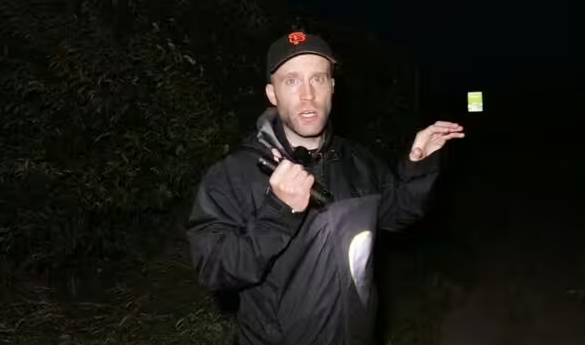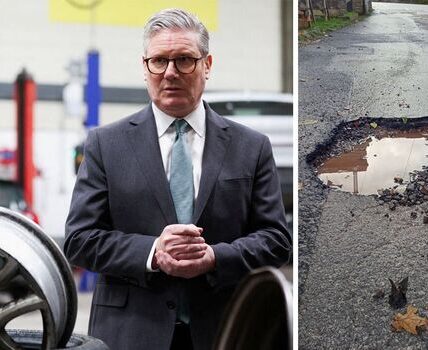EXCLUSIVE: Investigations editor Zak Garner-Purkis spent three days in Calais reporting on the latest migrants trying to get to Britain.

Express investigations editor Zak Garner-Purkis tracked migrants in the French countryside (Image: Daniel Dove)
He wanted to scare us away. The question is why? We were walking through a migrant camp in the centre of Calais, trying to speak with people intending to make the treacherous journey across the Channel. Some, like Abdullah from Somalia, were happy to talk, others less so.
Suddenly, a tall man with a pot belly and Middle Eastern appearance stopped us and said we shouldn’t film. Striding through the huddles of migrants, he was saying, “you have to have permission from police”.
He was aggressive and insistent, clearly concerned about his face being caught on film.
Despite hanging around with migrants at the camp, he claimed to “have no connection” to them.
This immediately raised red flags. If he was an outreach worker or some other official – that would be easy to say.

This group of migrants were stopped by police but didn’t have their details taken (Image: Phil Harris)
He spoke with disdain about coming to Britain, which again was odd for someone hanging around with people attempting to travel there, and refused to say where he was from.
When we stood our ground, reiterating that French law, like in England, allows journalists to film in public, he got angry and threatened to call the police.
I knew we were doing nothing wrong and waited for him to make the call.
Switching the phone to speaker, he loitered around us, calling some type of automated system.
We’d called his bluff; he wasn’t calling the police; it was a tactic to scare us off.
But this was not an isolated event.
During my trip to France covering the migrant small boat crossings, I faced a raft of obstacles whilst trying to simply do my job.
It became clear that in many places, people are being briefed not to speak to journalists about what’s going on or, in the case of the man in the Calais migrant camp, actively attempting to intimidate us.
I don’t expect people to talk to me; the decision is always voluntary, but I do question the intentions of those who try and spread silence.

Men with bags with lifejackets in them are spoken to by French police in Calais (Image: Phil Harris)
The more surprising challenge I encountered in Calais was with the French police.
During my three-day reporting trip to cover the small boat migrant crossings, officers stopped me six times. It was so frequent that it just became normal.
On each occasion, they took my ID, photographed it and quizzed me on my reasons for being in France.
Most of the time, the officers were very friendly and I was more than happy to answer their queries.
But there were also moments when they tried to disrupt our reporting.
As we followed a bus filled with migrants to Calais, we were pulled over by police officers whose intention appeared to be for them to reach a destination without the media seeing.
I encountered one of the officers from that team later, who stopped me again and was more confrontational.
He started telling me I needed a permit to cover the migrant crisis and alleged I’d taken photos of him without his permission. Thankfully, a senior officer intervened before the situation escalated, and I was allowed to go.
It’s good that the police take a healthy interest in anyone who is around groups of migrants heading to Britain and I happily spoke to them every time.
But the shocking thing is that the scrutiny I faced was in stark contrast to the way many migrants were treated.
Shortly after I was stopped by police for the first time, the same officers who photographed my ID pulled a group of undocumented migrants over.
They all lined up, preparing for police to speak to them, before an officer in a car waved them past.
I asked the group later what had been said. “They told us we could go,” was the reply.
Why were they not asked for IDs or questioned, as I was? Only the French police know.

